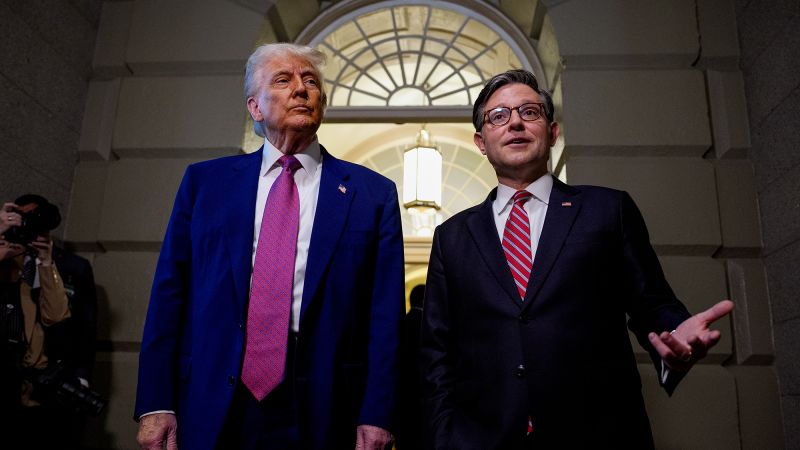On Wednesday, Speaker Mike Johnson of the House of Representatives expressed eagerness among House Republicans to formally enact what has been referred to as the DOGE cuts, contingent upon an official request from President Donald Trump’s administration to Congress. This statement comes at a time when fiscal policies and budgetary allocations are topics of intense discussion among lawmakers. Johnson emphasized the commitment of the House to enact substantial cuts to government spending, which he claimed are in line with both President Trump’s objectives and the desires of the American people at large.
In a post shared on social media platform X, Johnson reiterated the House’s readiness to take action on the findings from DOGE (Department of Government Efficiency), aiming to alleviate what he characterized as the problem of “big government.” He articulated the Republican stance that the proposed spending adjustments are necessary to meet the expectations and demands of citizens. The urgency of this legislative action is further highlighted by the anticipation of the White House’s initial set of recommendations, known politically as “recissions,” which are expected to originate early next week as Congress reconvenes after the Memorial Day break.
The insider information indicates that these requested spending cuts could exceed $9 billion, a substantial figure that underscores the fiscal tightening desired by the current administration. While specific details remain under wraps, House Republicans are on standby for the official proposal, with expectations set for its arrival in the near future. GOP lawmakers have noted that discussions concerning this proposal have suggested that targeted areas include programs such as the Corporation for Public Broadcasting, which is responsible for securing funding for entities like NPR (National Public Radio) and PBS (Public Broadcasting Service), both of which have historically faced scrutiny regarding their federal financing.
The anticipated foreign assistance cuts could present challenges, especially given the complex dynamics at play within the party, particularly among GOP leaders overseeing the State Department. The ongoing discussions and the framing of the upcoming cuts indicate a strategic approach by the House Republicans, seeking to align with the fiscal conservative base that demands reduction in governmental spending, as articulated by speaker Johnson.
Fueling the current dialogue is a recent video featuring Elon Musk, the billionaire entrepreneur and leader of DOGE, who publicly criticized the government’s spending efforts, specifically highlighting the perceived flaws in a recent domestic spending bill. Musk expressed dismay that the bill, rather than reducing the budget deficit, contributed to its growth—counter to the objectives of the DOGE initiative. During an interview with “CBS Sunday Morning,” he conveyed a belief that large-scale legislation often sacrifices quality, questioning whether a bill could indeed be both large and effective.
Rep. Marjorie Taylor Greene also weighed in on the discussions surrounding the DOGE cuts via her X account, revealing expectations that the first rounds of cuts would be formally introduced on Monday, targeting foreign aid and funding to NPR and CPB specifically. This sets the stage for intense debates as these proposals surface.
Current discussions, however, have not detailed when exactly the White House will relay its formal request to Congress or the precise programs it aims to target with the cuts. Once communicated, Congress has a narrow 45-day window to deliberate and respond to the White House’s request. This timeline presents considerable challenges, especially as Senate Republicans simultaneously work to advance their interpretation of Trump’s domestic policy framework, which the House had already passed prior to the recess.
In conclusion, the unfolding narrative surrounding the DOGE cuts signifies a critical juncture in U.S. fiscal policy debates, intertwining political strategies, public expectations, and substantial budgetary implications. As House Republicans prepare to act upon the forthcoming request from the White House, it remains crucial for constituents to remain informed and engaged in the legislative process as these significant governmental adjustments are proposed and considered.



